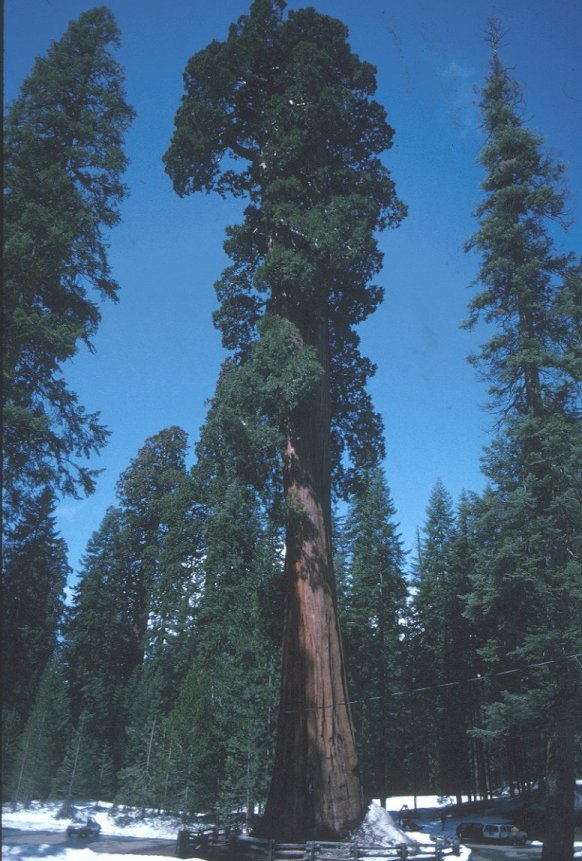| Botanical Name: Sequoiadendron giganteum | |
| Common Name: Sierra Redwood |

-
Anatomy
-
Culture
-
Design
Plant Type
Tree, Conifer
Height Range
40-60', 60-100'
Flower Color
n/a
Flower Season
n/a
Leaf Color
Blue Green, Grey Green
Bark Color
Brown, Red
Fruit Color
Brown
Fruit Season
Fall, Persistent
Sun
Full, Half
Water
Medium, Extra in Summer
Growth Rate
Moderate, Slow
Soil Type
Loam
Soil Condition
Average, Rich, Well-drained
Soil pH
Acid, Neutral
Adverse Factors
n/a
Design Styles
Ranch, Woodland
Accenting Features
Silhouette, Specimen
Seasonal Interest
Winter, Spring, Summer, Fall
Location Uses
Background, Lawn, Park
Special Uses
Screen, Wind Break
Attracts Wildlife
Birds, Wildlife
Information by: Stephanie Duer
Photographer: Acacia Software/Mullany
Photographer: Acacia Software/Mullany
-
Description
-
Notes
Sierra Redwood is the graceful evergreen giant that so epitomizes the Sierra Navada landscape. Though it reaches hundreds of feet in the wild, here in SLC, it may only reach 40 to 50 feet tall and about half as wide. Its foliage is finely textured and of a gray-green to blue-green color. The bark, with its highly distinctive red brown color and soft, thick, resilient nature, becomes furrowed with age. Cones are surprisingly small. This tree really wants to be where it is more humid, but there are a few around town; one of note at Fire Station #1.
Sequoiadendron grows in well drained soil and full sun, though it will tolerate part sun in its youth. Acidic to neutral soils are best, and sandy-loam to clay-loam soils. Hardy to USDA Zone 6.